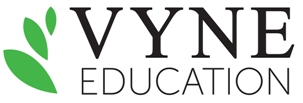Printer Friendly Copy
Getting the PIQ-ture Assessing and Treating Common Pediatric Patients
VYNE

Format(s): Live Seminars
Discipline(s): Physical Therapy / Occupational Therapy
Contact Hours:
Registration Fee: $199
Objectives
• Discuss specific evaluation tools and techniques for prematurity, torticollis, hypotonia, and hypertonia, including the PIQ (Posture in Positions, Initiations and Inhibitions, Quality and Quantity) system
• Examine treatment ideas and effective interventions for each diagnosis applicable in a variety of treatment settings
• Develop a personal ?resource treasure chest? to assist in the ongoing treatment of patients
• Integrate current research into clinical decision making for the pediatric patient
• Describe the assessment tools available for pediatric motor evaluations and identify which one(s) to use for specific pediatric patients
• Organize information gathered during an evaluation session into a comprehensive report
• Define and describe four common types of pediatric patients seen by motor therapists and school personnel
• Develop a treatment for each of the four types of pediatric patients: children with low tone, high tone, torticollis, and premature infants
• Implement the PIQ-ture assessment tool to complement and complete an evaluation of any pediatric patient
Description
Evaluation and Treatment Plans for Common Pediatric Musculoskeletal and Movement Problems
With the rising incidence of cerebral palsy, survival of the tiniest premature infants, and the increased incidence of torticollis, any professionals working with children in an inpatient, outpatient, school, or home environment will undoubtedly be asked to assess and treat children with movement and neuromuscular disorders. A diagnosis of "cerebral palsy" or "developmental delay" is very general and professionals who are asked to treat a child with one of these or other general diagnoses must have a good understanding of the evaluation tools and treatment options that will guide the provision of an individualized, safe, and effective program for each child.
This one-day seminar will help attendees choose the best assessment tool (standardized and non-standardized) for each patient and get a comprehensive picture of the patient by using an orderly approach for general observations (PIQ-ture). Goal-setting and treatment ideas will be discussed for each type of patient, noting differences between "evidence-based" treatment ideas and standard protocols used. The attendee can expect to leave with many hands-on ideas that can be used immediately in the practice setting, as well as numerous resources and ideas for further study.
Date And Locations
Provider does not currently list available courses on RehabEdge.